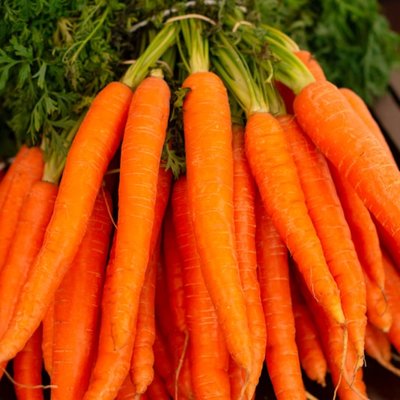- Ejemplos
The land-owning noble was now the only lord in the country districts. | El noble terrateniente era ahora el único señor en los distritos rurales. |
This is a relic from the days of the Ancien Régime, when long-established land-owning families ruled the roost. | Se trata de una reliquia de los tiempos del Antiguo Régimen, cuando las familias nobles establecidas desde antiguo gobernaban el pueblo. |
Property began to change hands in smaller parcels at auctions, and consequently a land-owning bourgeoisie immediately began to flourish. | Estas comenzaron a cambiar de manos rápidamente, y en consecuencia, los propietarios burgueses inmediatamente comenzaron a prosperar. |
In the Middle Ages, they were the serfs of the land-owning nobility, as they still are in Hungary, Poland, and Russia. | En la Edad Media eran siervos de los nobles propietarios de tierras, como lo son todavía en Hungría, Polonia y Rusia. |
Members of the PLRA are beholden to the country's land-owning elite, and are generally skeptical of Lugo's well-intentioned actions. | Los miembros del PLRA están en conflicto con la élite terrateniente del país, y en general, están escépticos de las acciones bien intencionadas de Lugo. |
Most of the capital accumulated by local land-owning families was destined for reinvestment in industrial infrastructures on the banks of the river. | La mayor parte del capital acumulado por las familias propietarias autóctonas fue destinado a la reinversión en infraestructuras industriales en las márgenes de la ría. |
Chamber of Deputies Signature Lafayette was born into a wealthy land-owning family in Chavaniac in the province of Auvergne in south central France. | Nacido en Chavaniac, en la provincia de Auvernia en el sur central de Francia, Lafayette provenía de una antigua familia adinerada y terrateniente. |
It is in these circumstances that land-owning groups, to avoid creation of permanent rights to land, may resist attempts by members to plant, trees. | Por ello, los grupos terratenientes podrían oponerse a que los miembros planten árboles para evitar la creación de derechos permanentes sobre la tierra. |
Urban and agricultural workers constituted the majority of the Red Guards, whereas land-owning farmers and well-educated people formed the backbone of the White Army. | Los Guardias Rojos estaban formados en su mayor parte por trabajadores urbanos y agrícolas, en tanto que los agricultores autónomos y gentes de educación tradicional constituían la espina dorsal del Ejército Blanco. |
Nothing could slow down the consolidation and expansion of capitalism, while the old feudal land-owning class established itself, seeding its own violent dynamic which led to unlimited opportunities of barbarism. | Nada podía entorpecer la consolidación y expansión del capitalismo, mientras la vieja clase feudal terrateniente se acomodada germinando su propia dinámica violenta que condujo en infinidad de espacios a la barbarie. |
As middle-class capitalists had replaced land-owning aristocrats in the late 18th century, so Marx foresaw that lower-class factory workers might bring society away from capitalism toward socialism. | Como media, los capitalistas de la clase había sustituido a la aristocracia terrateniente de finales del siglo 18, por lo que Marx había previsto que los trabajadores menos de clases puede llevar a la sociedad con el capitalismo hacia el socialismo. |
The Roman equivalent of the middle class, the small land-owning farmer, was driven to the wall by taxation and then forced to work on the latifundia, the agribusiness estates of the time, as a rural proletarian. | El equivalente romano de la clase media, el pequeño granjero propietario, fue entonces ahogado por los impuestos y luego forzado a trabajar en los latifundia, los grandes complejos agrarios del momento, deviniendo un proletario rural. |
Throughout most of Guatemala's history, the country's business and land-owning elites, supported by the military, dominated the country, particularly the rural, predominantly indigenous population, which provided the bulk of the labour supporting the agriculture-based economy. | Durante casi toda la historia de Guatemala, las elites empresariales y terratenientes, apoyadas por los militares, dominaron el país, particularmente las poblaciones rurales, predominantemente indígenas, que proporcionaban la mayoría de la mano de obra para apoyar la economía basada en la agricultura. |
This applies to conditions in which the laborer owns his means of production, and this is the condition of the land-owning farmer and of the craftsman in the old world as well as the modern world. | Esto se refiere a los regímenes en que los medios de producción pertenecen al obrero, situación que se da tanto en el mundo antiguo como en el manejo moderno respecto al labrador que cultive su propia tierra, y respecto al artesano. |
The land-owning citizens had more money than other classes. | Los ciudadanos hacendados tenían más dinero que otras clases. |
The land-owning Cossacks held out longest of all, dreading an agrarian revolution in which the majority of them would lose, and not gain. | Los que más resistieron fueron los cosacos-propietarios, que temían a la revolución agraria, en que la mayoría de ellos tenía que perder. |
The workers had been formerly the feudal subjects of land-owning lords and had counted on year-round support from their lords; but they had emigrated to the cities and sought employment in the budding cloth-making industries. | Los obreros eran hombres que habían sido los servidores feudales de nobles terratenientes, y que habían contado con el apoyo de éstos todo el año, pero estos obreros habían emigrado a las ciudades y habían buscado empleo en la naciente industria textil. |
This would resolve issues such as the prolonged time which it takes the Land-owning Unit to select a replacement farmer. | De ese modo, la asociación de propietarios de tierras tardaría menos tiempo en seleccionar a los agricultores que reemplazan a los ex arrendatarios, por ejemplo. |















